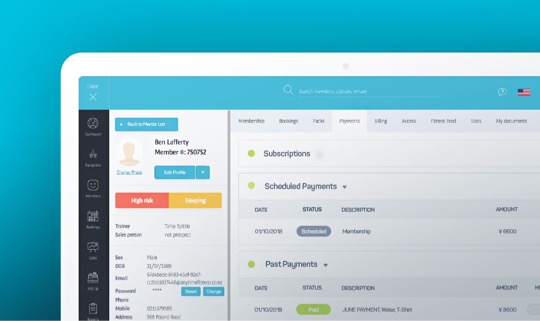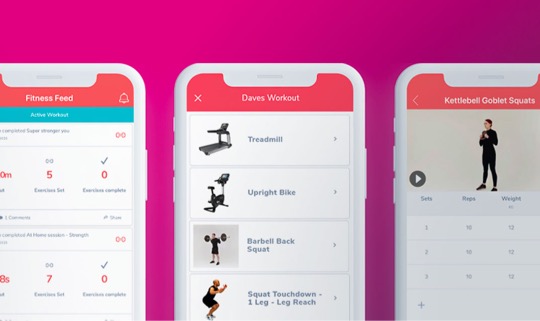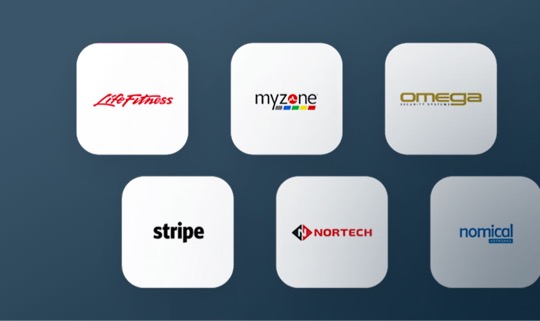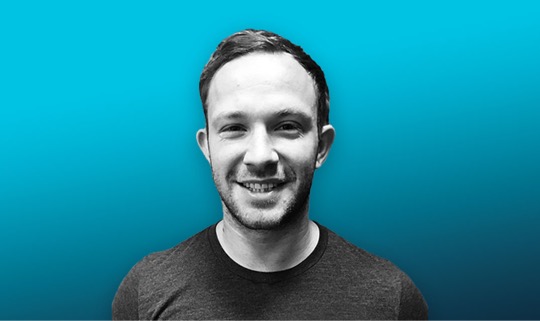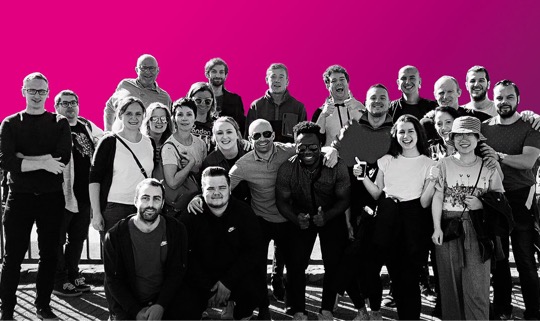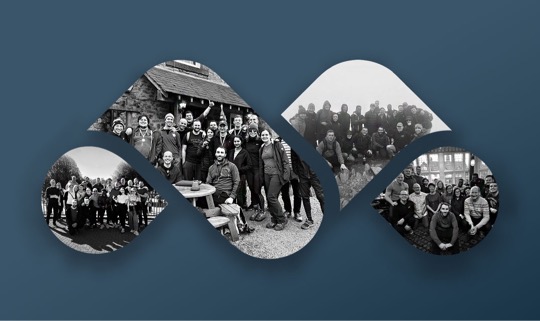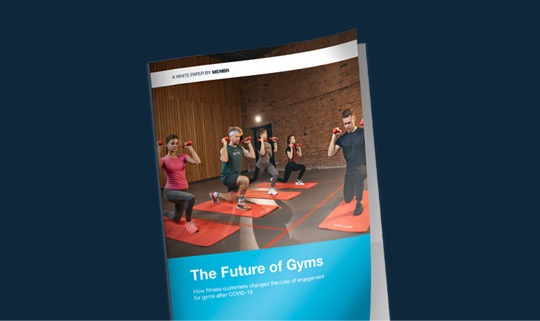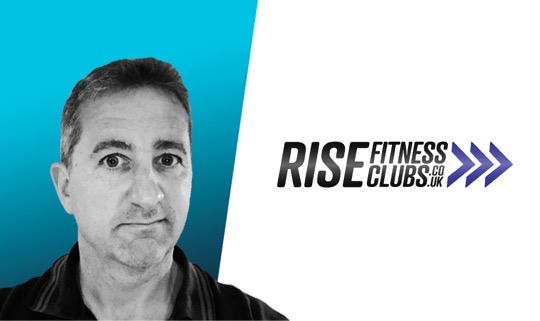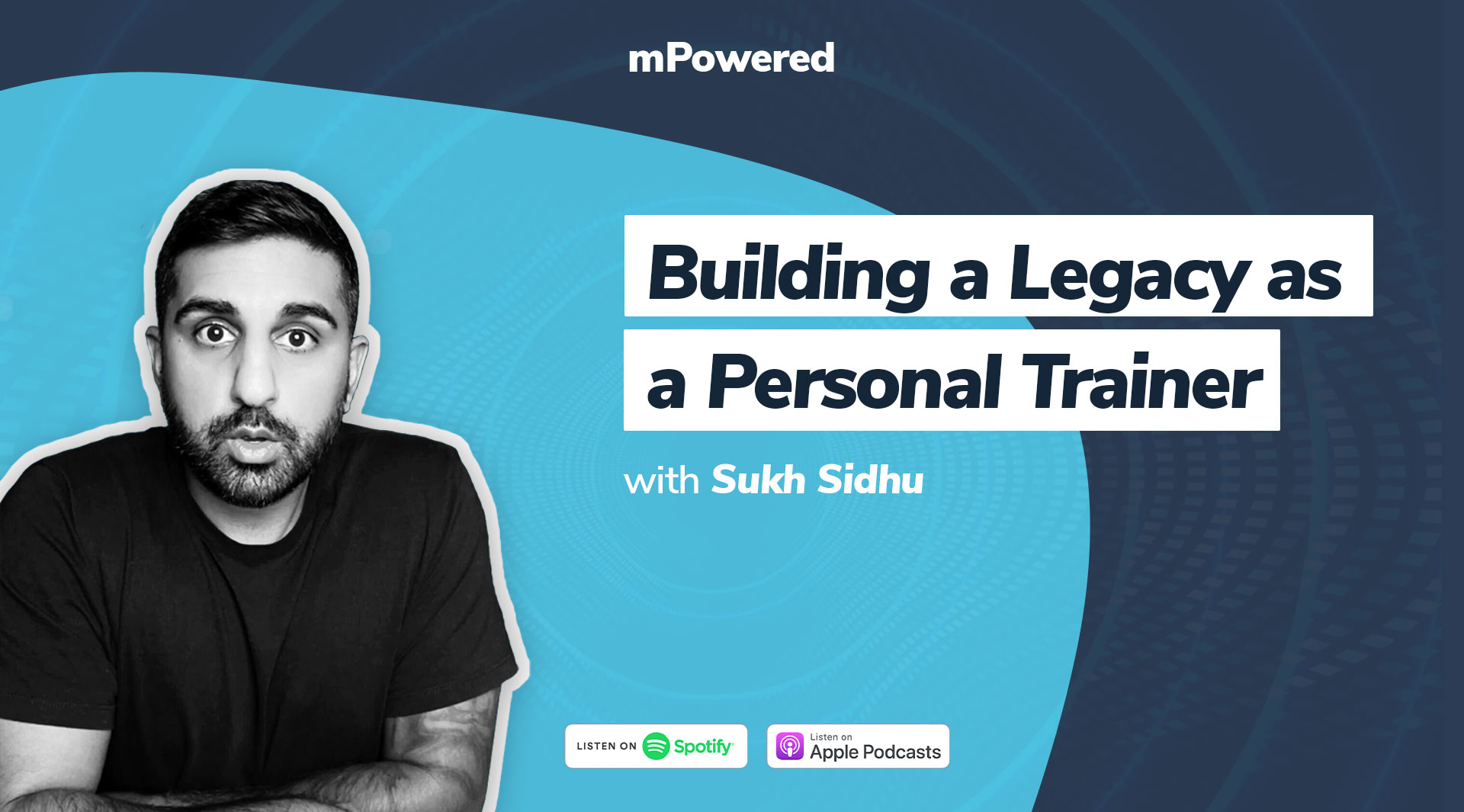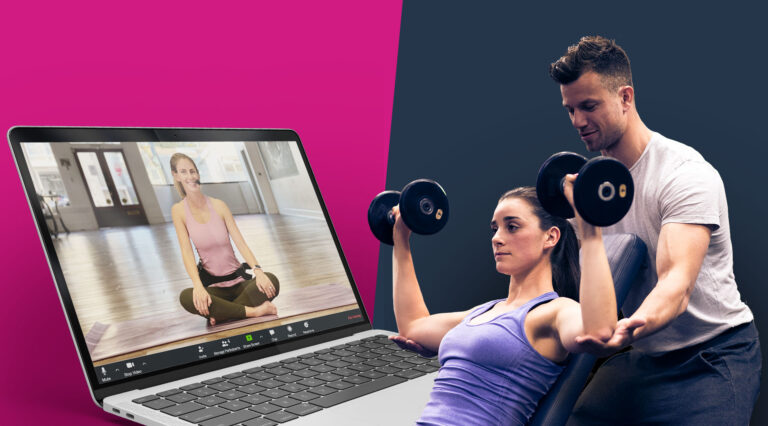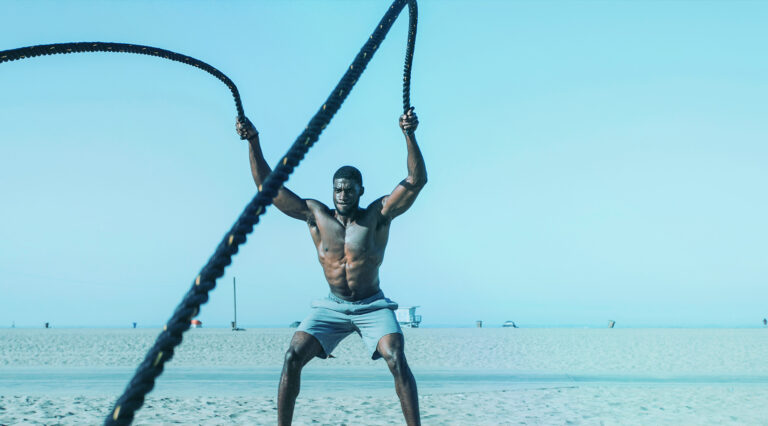Craig McNeill: [00:00:01] So mPowered podcast is here with another legend guest and we have got an international guest, a Warrentonian guy. Are you from Warrington?
Sukh Sidhu: Yeah. Born and raised. Up until 33 years old.
Craig McNeill: And now you’re living somewhere different, which we’ll learn a little bit more.
So good morning, good afternoon, wherever you’re listening. How are you buddy?
Sukh Sidhu: I’m good mate. Thanks for having me. I’m very happy to be here and obviously connect with you again.
Craig McNeill: Yeah. I can’t stop calling you coach though. Once you’re a coach, you’re always a coach. Right? So we know it’s true cause you, beat my ass when I was in CrossFit, Warrington, CrossFit Leigh with you and you were my coach and that’s where we met a few years back.
Sukh Sidhu: Many years back. It was probably. 2013, 14.
Craig McNeill: Yeah. Around there. Something Yeah. Awesome mate. I was, It was great to get coached by you and the, and the team down at CrossFit Warrington. It was a good [00:01:01] little crew that you had, which was. Most important thing of the, of, of, of gyms isn’t it, is it’s the it’s the team that you have around you as well.
Sukh Sidhu: Yeah. The people, coaches, community.
Craig McNeill: Yeah. So come on, tell me what you’ve been up to since then, or, or include in that as well. Give us a little bit of intro of, of yourself. The good old elevator pitch.
Sukh Sidhu: Yeah. So, well, it’s a 15 year elevator pitch. It might not be a a five sentence one or a one sentence one.
So I’ve been in the fitness industry for, I think it’s probably close to 15 years now. PT, remote PT, mobile PT. And then obviously I opened the gyms in 20 12, 20 13. Around that time, during the same time I moved online, so I was working with clients online around the same time as well. 2016 I think. We sold the gyms and I went all in online, so I was working with clients all over the world.
I had a company called Project Lean. And ended up, I think, in total about about 4,000 clients through our [00:02:01] one-to-one online coaching group coaching programs. And then in 2016, after being pestered for a long time to teach others how to do the same. Cuz online was relatively new then it had been gone on for a while where it was wasn’t common.
In 2016, I kind of finally gave in and, and started teaching others to do the same. So started a company called Online Fitness Business or OFB and from 2016, up until this year, we worked with around three, just over 3000 other trainers and coaches teaching them business, marketing, sales, and operating an online service.
And then that kind of led me to what I do today, which is Stridist, which is an online coaching platform, a piece of software that will enable other trainers and coaches to, to run their entire business online. So everything from all the marketing tools that they need to actually delivering their service to services, to clients.
And that’s where we are today. It wasn’t actually pretty [00:03:01] quick, actually. Concise. Yeah.
Craig McNeill: And you moved over to Dubai during COVID?
Sukh Sidhu: Yeah. So a couple years ago. It was peak COVID, So 2020. Yeah. When we had like, Maybe a two week opening of lockdowns, calming down. We escaped and then lockdowns came back.
So it, it was good timing. But yeah, we’re very happy in Dubai now, myself, my wife, my daughter, and my dog living a very different life to the one we were living in Warrington. But the beauty of obviously online business is that we could do it.
Craig McNeill: Absolutely. And that’s fascinating mate. That’s, that’s amazing. So do you feel like you’ve had to go through those stages to get to where you are now and obviously where the future takes you as well? Kind of, you know, those stepping stones, like you just mentioned?
Sukh Sidhu: I think it’s definitely helped.
it’s a huge differentiator now for us as a company as well. You know, the majority of other, I don’t wanna say competitors, I, I never see people in that manner, but other options that people have, they’re all faceless corporations, right? They’re all faceless brands face, [00:04:01] like you go on their website, it’s very corporate, very clean, technology-driven.
And, and a huge bonus for us is that our team are coaches, right? We’re trainers, coaches from this world we’ve worked in this industry for a very long time. We are okay to have our personalities out there to the world to share our experience. We’ve got founder stories, we’ve got team stories, we’ve all spent time in this industry.
So not only does it help us as a business, but it helps us from a product and customer service, customer success perspective because we’ve been there, we’ve experienced it all, and for the past six, seven years we’ve been helping trainers and coaches as well which just gives us an entirely different perspective and skill set than anybody else has really.
We know what’s important, so I don’t think I have to go on this journey. You know, there are plenty of companies that come into this industry because they see pound signs and they do make a lot of money without that journey, but I, I feel like, I like our journey. It feels very Authentic and like a, [00:05:01] a nice path to take to, to add value, help people through understanding them.
Craig McNeill: Absolutely. Amazing. And Stridist is something that you, you’ve kind of come into recently. So you’re going through huge growth. So in terms of, what I can see is, is that you’ve gone from kind of a, a small number of, of coaches, trainers to over a thousand paying coaches.
That’s incredible!
Sukh Sidhu: Yeah. So we acquired the platform last year.
So one of the most common questions that we would get every week without fail. And that’s not exaggeration every single week when working with other trainers and coaches. Yeah. Was what app should I use? What software should I use in terms of, you know, delivering their service online? And we were never confident enough in any of the other platforms to recommend one or stand by one.
So our, our answer was always just go and try them all and pick which one you like. Yeah. We figured that eventually someone would figure it out and rather than just being tolerated. One would come along [00:06:01] that everybody loved, or enough people really liked, and, and we could back and, and partner with, or at least recommend, and it never really happened.
And then last, last summer, we stumbled upon Stridist. We knew the founder wanted to sell, and it was just, it felt like fate, right? We’ve, we’ve been asked this question for the last six years. I struggled with it when I was a coach. I tried different platforms. And the opportunities kind of fell on our a lap. So we ended up finalizing the acquisition probably not far from a year to today, maybe, maybe the end of November last year.
And we spent way too much money, way too much time before we then relaunched it to my audience and to the world again. But we launched it start of May or end of April this year, 2022. At that time I think we had 14 paying users. Wow. So we’ve gone from 14 to just a, just about to approach a thousand paying coaches on the platform.
So growth’s been amazing. Hasn’t all been plain sailing [00:07:01] and plenty of challenges. The, obviously there’s the upside of us being experiencing the fitness industry. The downside is that software is new to us, it’s a completely different beast. So that’s been a steep learning curve, but going well so far. Definitely can’t complain.
Craig McNeill: Awesome mate. Yeah. And, and that’s kind of the, the testament to again, that that backstory, you know, it’s not just 12 months that you’ve just been lucky, which I don’t believe happens by the way. You, you make your own path and that’s exactly that what you, what you’ve been doing. So actually you, you’ve been doing for coaches for years actually.
When you, when you say you, you’ve been going into teaching and, and coaching coaches, you’ve been doing what they do for clients and that’s really interesting as well. So obviously creating your, your sales forms et cetera, for your, your coaches to use your product, that’s actually what you are teaching them and helping them do with their, their business.
So I imagine there’s a lot of synergy in that as well.
Sukh Sidhu: Yeah, definitely. I mean, [00:08:01] most competent personal trainers will understand the value in coaching. I hope they do, cuz it’s what they’re doing. So we are just, we’re just doing the same for them and, and. And just plug in the gaps and fill in the gaps that, you know, maybe they don’t learn in their level three or level two or level three.
They’re often go left out to, to go out to the world and, and figure out themselves a little bit. So we’re just filling those gaps, making sure they’re set up to be successful and, and stay in the industry and last – obviously there are massive attrition rates and failure rates from pe from PTS is not lasting, you know, much longer than a year.
So the goal has always been to help them with that, give them optionality. And you know, you can go online. You can be hybrid and doing a mix, mix of both. You don’t have to struggle on a gym floor if that’s not what you want to do. So just giving them more power, empowering them to, to have choice in their career and be successful however they want.
Craig McNeill: A hundred percent. And this is really exciting, isn’t it? So, As you know, I’ve kind of randomly kind of come into this path as well where PT [00:09:01] and then come into kind of digital space and I, I, I had to teach trainers how to embrace digital and I, and I use a few analogies cause I love an analogy, so I use the music, music kind of timeline.
You’ve gone from tape recorders to portable DVD players, then to MP3 players, then to iPods and now we’re, we’re cloud-based Spotify. So there’s there’s the same path to, to coaching. I absolutely remember programs on paper and we were, qualified in that nature. So all of a sudden, Our template was in that space.
So we’ve gone through that change faster than the music generation as well. So that, I think that’s really exciting because it opens up more aspects, doesn’t it? So to jump in there, so what is different about Stridist? So you’ve mentioned a couple things, but just to kind of just clearly ask you what is so good about Stridist?
Sukh Sidhu: So [00:10:01] the suite of tools is very different from the other options out there. And then the non-software based resources, support, et cetera that we provide. So a lot of the other platforms do something well from a coaching perspective. None of them do everything well, and, and we are still working towards that.
Right. Being completely transparent. Obviously we’re very new. We’ve, we’ve done a lot in less than a year, and we’ll get there in the next six months but all platforms do some things well, when it comes to the coaching element. No other platforms have the other side of it that we have, so, you know, our users can build landing pages, sales funnels, core booking software that we have built in.
So a lot of people will come to us and they’re paying for Calendly. They’re, they’re paying for Typeform or another form builder. They’re paying for something like MailChimp to do email marketing. They’re paying for something like ClickFunnels to build sales landing pages. They might have a website that they pay for as well.
You can do all that on Stridist. So you can send [00:11:01] emails, you can build email automations, you can build landing pages, you can build entire websites. You can create a, a call, booking link. You can build forms for the public. So application forms, for example, or for your clients. So check in forms. So you can do all of that within Stridist and take payments as well.
So that’s from a software perspective that just completely differentiates who we are and and what we offer. Again, that comes from an understanding of what our audience needs, which the other platforms don’t necessarily have, and then off-platform, all the education that we’ve filmed, recorded all the resources that we create and have created through our time at OFB over the last seven years of teaching coaches has just continued. So now Stridist users have access to all that. We have guest experts coming up. We’ve got a 14 day Stridist launch program starting in the next few weeks or probably around the same time that this podcast goes live. That’s, you noticed a, a 14 day intensive to help our users and new users [00:12:01] set up their sales process set up their coaching online, get everything in order, go out and get clients. And that’s the type of education that again, only we can offer. Others I’ve seen try, here’s a webinar on how to build a brand, and it’s just completely irrelevant. It doesn’t help a, a coach go out and get a client today, which is a lot of what the issue is. Like go and speak to a person today. Go and get a client. Here’s how what you do on the sales call. Here’s how to get the client from social media. Here’s what to do once they sign up. Like none of that is taught. We’re teaching all that as we have for the last few years. We’re providing the templates resources, even things like brandable recipe packs, so we can go and grow email list or add value to clients how to use social media.
So that’s where we differentiate ourselves. Everything on top of the coaching. Software itself is stuff that other people just cannot do.
Craig McNeill: Sounds like a perfect fit. And did you realize that this was the biggest problem when you kind of moved back into your [00:13:01] old roles? And did you see this as a, as a biggest problem in the fitness industry for coaches?
Like, this is the, the gap, this is the, place that they need the biggest support?
Sukh Sidhu: It’s definitely the skills gap. So you know, you go, a lot of trainers and coaches start their career geeking out on anatomy, nutrition training, right? And then they walk on the gym floor and it’s like, now what? Terrified to speak to people, unsure about how to approach people.
If I do have a conversation, where do I send them? Like what do I actually do as a next step if I actually book a call or an in-person consultation, what the hell do I do there? How do I retain someone? How do I add value on top of my service. So it’s not just, you know, Oh, see this client, I do this one session with them.
See you later. See them again next week. You know, we wanna make sure that coaches provide way more value than that as well. So, yeah, the, the gap is very much. Not necessarily just plugging the gaps in terms of skills, because we don’t think trainers are good enough. It’s, it’s to empower them, like, here are all the skills that [00:14:01] you need to be really successful, or at least, you know, help a lot more people as well.
So that’s, that is where the, the gaps lie in terms of when somebody comes out of a level three and they’re qualified, they’re kind of left to figure out the rest themselves. And that’s where, you know, and there are other educators post-qualification that help with this as well. It’s not just us, but that’s where it doesn’t seem to be a priority for anyone who has control prior to qualification.
So it should be, but it’s not. So it provides an opportunity for people like us to, to step in and, and provide that.
Craig McNeill: Totally, totally. So I’ve noticed that your biggest plug is kind of building this for the 2% of trainers.
So is that a reason for you to focus on the 2% because there’s a problem that this is not fixing? Or are you now realizing that you can’t fix the bigger problem and your razor focused on helping the ones who understand they need help.
Sukh Sidhu: Yeah. The the [00:15:01] latter. So the 2% in almost all industries are enough, right?
So in the fitness industry, the 2% are the trainers and coaches who are obsessed with personal development, career development, and professional development, right? They wanna get better, they wanna help more people. They’re ambitious, and that’s who we can help. If somebody comes into this and they’re, you know, they’re desperate to just make a quick buck, they wanna send out, you know, cookie cutter meal plans or show up to a, a PT session. They’re a couple of minutes late. They just wing it or, you know, in that hour, and then see you later bring the next session. And they’re not invested in their career, and it’s really hard for anyone to help them be successful.
So we kind of call that out for two reasons. Number one, because it will help us to attract the people that we’re trying to attract, right? By saying, Listen, if this is you, then we can really help you. But there’s a part of us that hopes that people will see that and they’ll get their back up a little bit and be like, [00:16:01] hang on a minute.
I do that. I’m not a bad coach. And one approval’s wrong. Right? And if that happens, Fantastic. Yeah. It’s a win-win for us. Right. Even by annoying people. Hopefully we’ll raise standards even if they don’t work with us.
Craig McNeill: I love that mate, cuz it’s unique and brave at the same time. So we think, I’ve just said it before, we think we can fix the world right? We can. A hundred percent of people should take my business cuz they will see value in it. We wrongly think we can do that. So I think that’s unique. I think a lot of other products or people, whether that’s the same thing, maybe think that they, they’ve got a bigger catchment than actually what, what it is.
So that’s very unique and I love that. And it’s also very brave of calling that out.
Sukh Sidhu: Yeah and it harks back to what I said near the beginning where most of the other options in our space are faceless, corporate and our backstory meet has given us maybe that bravery or confidence to know that we don’t need to do that.
At all. Like we, we have a story. We’ve been in this [00:17:01] industry, we know what people should and shouldn’t do, and we’ll, we are happy to tell that story and speak to who we want to speak to. And you know, the fitness industry is huge. The amount of trainers and coaches very, like from a personal trainer, fitness coach, nutrition coach, I have no idea globally.
It’s so hard to find out. I’m sure you’ve done this research in the past, but we we’re into millions, right? Probably two, three plus million among nutrition and fitness professionals. 2% is plenty . If we reach our, our, our 2%, we will help a hell of a lot of people. Not only the, the 2%, all their clients, which will probably run into millions of people helped, consumers.
It’s a big enough business for us, you know, so 2 percent is fine. And we’re happy to, focus on that in our, in our marketing and our content.
Craig McNeill: What’s your thoughts about the, the shift in what a couple of last couple of years have has happened that a lot of coaches and trainers now feel more competent and confident outside of the [00:18:01] gym space?
Sukh Sidhu: Yeah, I think it was happening anyway, but Covid accelerated it, it just applied rocket fuel to what was already happening. And it, it happened in quite a lot of industries, like, you know, streaming industries and Zoom and stuff like that. I went to the moon and then it’s kind of simmered a little bit, but that initial rocket fuel that it provided probably accelerated what was gonna happen in 10 years to four years. Right. And there’s been a little bit of drop off again, and now people will rebuild. But it definitely accelerated what was already happening. And again, this is something that we know because we’re working with the coaches who are doing it, and there’s a huge desire for tra from trainers and coaches to move online and/or provide exist gym floor clients with additional programming and support and off gym floor value. So it was happening anyway it just forced people’s hands. That was all, so, you know, we, we kind of see our audience in, in three categories. We have the trainers and coaches who know about online.
Mm-hmm. and [00:19:01] it, great. It sounds great, but they’ve just never even, wouldn’t know where to start, right? Then we have the people who have dabbled online and they’re trying to make it happen. And then we have people who are successful online. What it did is those people in the first category, who would never have, who just weren’t there in terms of considering it yet, they had to, so straight away they jumped into category two, right?
Yeah. So, so that’s what it did. It just kind of accelerated those people who were thinking, Yeah, one day I’ll figure it out, and, and made them do it now.
Craig McNeill: Yeah, and the obvious thing is we hope and we aspire to the educational framework to move with that fast. And we know that they had to, just like the scenario of coaches and gyms, they had to move online and deliver their content online.
We really, really hope that that also has helped them shift the paradigm that we need to support the fitness professional to be offering a wide range of, products. That’s the key, isn’t it? We all, [00:20:01] you and I both come into this industry wanting to help people and the more people we can help, the more people we can reach, the better our values and beliefs will grow.
Sukh Sidhu: Yeah. The frustrating thing is they’ll catch up, right? The education and curriculums will catch up. It’s just so slow. You know? It, it’s, it’s gonna happen in years when, it should have happened years ago. Yeah. Right. So you speak to trainers and coaches now, they’re all online, they’re all on social media, they’re all trying to do something digital, and it’s still not covered in any way, shape, or form.
You know, as far as I’m concerned, like we love to partner with training providers or even governing bodies and be like, Here’s Stridist. Give it to all of your students. It’s free. They can have it for 12 months. It’ll give them time to learn through using it, learn through, you know, improve it. They can improve their service whilst they’re learning through the course, the curriculum.
They can test it with clients or sample clients, free clients when they qualify. And then, you know, after that 12 months, if they wanna stay with us, amazing. If [00:21:01] they don’t, we’ve given them everything we can and, and the governing bodies and the training providers have done everything they can and we can all say, You know what, We all tried our best for this PT.
That’s all we can do. So yeah, we, we, we wanna see that. And, you know, it’s probably down the line for us, but, you know, we, we want to get involved in that if we can. Obviously I’ve been outspoken about wanting to improve standards for PTs from an education perspective for a while. So I have to see if I can rebuild some bridges.
But yeah, it’s all, it all comes from a place of just wanting standards to improve.
Craig McNeill: This May, because I know you, but I think it’s coming from the right place because of your passion of wanting it to be the level or standard it should be.
Sukh Sidhu: Yeah, a hundred percent. Like I just, the, the standards for PTs are so poor.
And it could be as easy as just empower them, you know, so that when they step on the gym floor, they’re ready. They know it from a soft skills perspective. They know how to communicate, they know how to help people. They have the resources to conduct [00:22:01] sales, like set them up for a successful career rather than understand, rather than just knowing where a bicep inserts, right?
Like they need that other stuff if they’re going to be successful.
Craig McNeill: Quick question for you. What’s the standard like globally? So, living in the UK obviously in our UK bubble, I got a good perspective of PT in our country. With Membr we have gyms globally, but sadly I’m not in touch with the PTs as directly as what you are globally. What, what is the standard globally?
Sukh Sidhu: Do you know what I, I don’t think standards of the PTs that are on the gym floor are that poor, right? I think a lot of clients do just want a coach that gives them a flogging for an hour. They just want their hour in the gym where they end up on the floor sweaty, they’ve done their workout, they feel bad at the time, but they feel good for doing it.
And then that’s it. Right. And if I’ve had PTs like that, And if that’s what a client wants, fine. That [00:23:01] doesn’t make someone a poor PT they’re just working with different types of clients. So in terms of standards like I think they’re great.
They’re, they’re far better than perceived by the general public. Like most PTs care deeply about helping people about, and they spend so much time on like development and learning and trying to be better. So I think. It’s not necessarily the standard of PTs, it’s giving them the skills to last, right? Once a PT lasts a few years, they’re probably good enough to help the people who they help.
Very few PTs do harm, right? And I think far less than what, again, what people perceive or bad PTs out there doing, you know, being inappropriate with clients or injuring clients. It’s so rare, like, don’t get me wrong – one occurrence of that is bad, but it happens in any industry. PTs aren’t necessarily worse for it.
So I think standards are, good enough, but could always be better. But I think better empowering PTs to kind of teaching them do no harm. Here’s a, Here are the expectations [00:24:01] for creating a better overall service for clients and getting them better results. And again, the business and the soft skills as well on top of that is what’s required from the training providers, course writers, wherever it may be. It’s them that need to improve standards, and then the knock on effect will be coaches who are better prepared and better equipped to help more people and, and survive and, and do well.
Craig McNeill: Yeah. Bang on. Love it. And agree with everything you’ve said there it’s equipping them with the skills, as you say, and, and the support. You know, it’s, it’s a lonely, role sometimes because this is not right, but you do feel other professionals around you are obviously competing with you, so you can’t really open up a hundred percent. Now, sometimes you get lucky where you’ve got a really good friendship and, and then that helps but generally it’s very, lonely.
Sukh Sidhu: Yeah, and, and the. best thing that’s happened for that recent, well, in the past decade, is online, right? Online communities for PTs as well. So I’m surprised we haven’t seen more [00:25:01] training providers provide that post-qualification, and it’s just a, you know, from a commercial perspective, I’m sure it would be a nice win.
But again, from an improving standards perspective and keeping PTs in the industry, it, it, it’s a no brainer.
Craig McNeill: Definitely. I wanna change the narrative and. I’m really interested to kind of learn as much as possible and also kind of give our listeners some value of your journey because I, I think that’s pretty incredible.
And I’ll say it instead of you saying it sounding, making you sound like youre self- promoting. Appreciate it. And for me it’s kind of, is it right in saying that your career’s taken into kind of three blocks? That’s, that’s the vision I’m seeing where you are. You’re on the gym floor. Owning gyms as as your phase one.
Then phase two, you went online, you did it yourself, And now you’ve taken that into phase three, where now you, you’re a SAS owner. It’s very different in that world, but actually it’s just changing ever so slightly. Would you say that was correct or would you say
Sukh Sidhu: Yeah, Yeah, [00:26:01] yeah. And, and there’s some overlap in those phases. So I still had the gyms when I, you know, launched online and I still had my online coaching when I launched the education and, and then the SAS as well.
Craig McNeill: So what have you learned from each one of those periods to help you go into the next period and the next period?
Sukh Sidhu: So the gym floor stuff was, was probably all about… well, it’s probably two main things I learned. Number one, like speaking to people and like something that saved probably my career was a book called How to Win Friends and Influence People.
I know that’s probably spouted a lot by a lot of people, but I was really bad with people prior to reading that and it probably came about more when we opened the first gym and I, I just thought, I need to get better at this. I have to be good at it. So reading that book really helped and, you know, being a better communicator from a friendship, community based perspective, building relationships with people on the gym floor and selling as well. So that was one major skill. The other thing was with [00:27:01] time spent PTing and being in the gyms is learning about the consumers, right? The, the, the clients themselves and what they need, the help with their challenges, their perspective really, Which obviously I don’t get now cause I’m, the clients aren’t necessarily my customer.
We still treat ’em like that. We still view them like that. But, you know, that was my time to really learn about how to communicate and learn about things from a client’s perspective. Because, you know, at one point in the gym we, we probably had 150 people coming into classes per day. And because of the kind of gym it was, I spoke to all of them every day.
So, you know, it was kind of accelerated relationship building.
Craig McNeill: Yeah, I remember some characters mate, you have to be diverse in, in your own skills to communicate to those so many different types of people.
Sukh Sidhu: Yeah. And a massive range, like personality types, age ranges and beliefs and some, you know, big egos as well. So that was, that was probably the big learnings from that stage. And then moving [00:28:01] online, I suppose. the big learnings that happened then were probably everything related to selling and marketing online. I, I already had the kind of ability to, once somebody was on the phone, I, I had enough about me to, to make a sale, but how do we get there?
So from a marketing and, and booking course perspective, that had to be massively upgraded and everything was pretty much digital. Obviously I had that reputation locally, which helped. And then on top of that, how do I get results for people who I’m not seeing on the gym floor. So I became way better at programming, doing check-ins, supporting people ensuring that I was helping them manage the 23 hours of the day that they’re not on the gym floor, not just the hour that they spend on the gym floor.
And, and that massively improved my ability as a coach. I was a way better online coach, I think, than a gym floor coach, but I got way better results. So that obviously helped a lot and and through like I really enjoyed the business side as well, so marketing and [00:29:01] selling through learning get and getting better at that, I really enjoyed it, which is why, obviously the next step, which was education and teaching others to do it, That went so well. So, you know, I’d already built up a, a following of other trainers and coaches who just wanted to learn from me. So that was one of the easiest part of my career, right? Like selling those courses or working and educating other coaches because I already had the audience.
I’d been very transparent about what I was doing and at the time as well the online coaching space was full of business mentors or core sellers who were all about make money on autopilot, sit on a beach, sippin’ mojitos. You don’t have to do anything. It’s six figures in six weeks. So just through being transparent and being like, that’s not what it is, it’s really hard.
You have to get clients’ results. You, you have to get good at all these other things and you, it is time consuming as well. People were kind of fed up with that other messaging, and I came through with, Whoa, it’s not like that. It’s like this and that, Through that polarization, it, it worked really well.
It was good timing, and then [00:30:01] through to where we’re at today and, and launching a, a software company or acquiring and, and then launching a software company.
Where do I start? It’s been more about managing people, managing developers and software itself, but everything else is the same. It’s still people. It’s still managing relationships. It’s still about us helping our users be successful so that they can go and help more people, right? That’s what we care about.
Like our big driver behind this is from starting Go FB 6, 7 years ago was empower coaches, right? Give them everything they need to help more people stay in this industry, earn more money, build a great life for themselves, and it’s, everything’s still the same. It’s just that now I have to figure out how to manage developers and everything that comes with building a software company, which is hard. Very hard.
Craig McNeill: Yeah, You, you’ll end up with no hair like me soon.
Sukh Sidhu: I’m going gray. I’ll keep my hair, but it’ll be very white, very soon.
Craig McNeill: It’s quite dark, you must be dying it at the moment.
Sukh Sidhu: I think it’s just the light. Let it grow out a [00:31:01] little bit and we’ll see!.
Craig McNeill: Again, how important is those transferable skills. So what I’ve just, what I’ve just witnessed is your transferable skills through, through your time and personal trainers out there who’s listening and who are thinking of the next steps or is this something that I can do long term? For me, it sounds like the skills that we learn by doing that role, actually, just be comfortable at learning those transferable skills and let the future just lead. Because I’m sure 15 years ago you didn’t think for a minute you would’ve done probably all of those steps. Never mind the one that you’re in, right now.
Sukh Sidhu: Not at all. I just wanted to be a, I remember like wanting to be a PT, everybody telling me not to do it cause nobody makes any money being a PT . But wanting to do it and, and that’s how most people get into PT. I wanna be a PT cause I like fitness. Right. I like training, so I’ll be a PT.
And yeah, [00:32:01] in terms of like where PT should focus, as you’ve said, like gain those skills and the world’s your oyster. Like you can do whatever you want. You’ll be successful in your current role, and just see what doors open. You know, build relationships build relationships with peers and people just slightly ahead of you.
And you never know that you could be on the gym floor in 20 years from now. Absolutely loving it still , or online, but the reality is if as long as you, you know, continually develop, And knowing what to develop is, is the hard part. Really. The, the good thing nowadays, like unlike when I started the, the information is abundantly available.
And there are plenty of people out there who can help. Again, wasn’t the case when I went online. It was like, like I said, make six figures in six weeks. And it was just the high ticket sales script and that was it. Right? Here’s a, you know, high pressure, high ticket sales script. So the information’s out there, I think if coaches, if new personal trainers know what to get better at, and again, this should be that, you know, guided by through their qualification process. But if they know and figure that out, [00:33:01] the rest will come to them. I joke with a friend of mine, Luke, who, you know, we’ve both gone on this path and both of us are like, I kind of miss the gym floor now, like our retirement in 10 years or 15 years whenever it happens, might be seeing each other on the gym floor again and, you know, working four, five hours a day hopefully if we’re in a position to do so.
And just working with a handful of clients that we love working with. So don’t be so quick to, to think that you wanna escape the gym floor because the reality is you can earn a great living and, you know, be around great people, your kind of people be active and wear jogging bottoms every day. And you know, just enjoy a good life.
People lose sight of that sometimes when they’re trying to chase constantly
Craig McNeill: Some wise words. Some exciting news from Stridist. So you guys have just been accepted onto the US Startup Accelerator?
Sukh Sidhu: Yeah, it’s an exclusive, this. I haven’t actually told anyone yet, I’m hoping that this podcast goes out after the official announcement. Otherwise I might get in trouble. But yeah, we’ve just been accepted onto, a US accelerator, a [00:34:01] startup accelerator called Tiny Seed. They’re really prestigious in the US; they’re are an accelerator for companies that aren’t looking to grow at all costs and aren’t looking to IPO, right? We’re not expecting to IPO. If, if it happens, amazing if that presents itself. But we wanna, grow a business where that we can manage. Yes, we are ambitious, which is why we applied for the accelerator and we got the investment. But without driving ourselves down the path of venture capital where it’s IPO or fail, right?
We don’t wanna be in that situation. So yeah, it’s really exciting. Should kick off 1st of November. It’s a 12 month accelerator. The guys that own it have, you know, been there, done that as have the team. And we’re gonna be surrounded by other amazing founders from technology companies all over the world. So it’s gonna help us a lot, probably for us. Fill in the gaps, the skill gaps that, that we need to fill.
Craig McNeill: For sure. More learnings every day’s a learning day, right?
Sukh Sidhu: Yeah. Never ends.
Craig McNeill: Amazing. So I think I could pick your brains all [00:35:01] day, I think we need to bring it to a close and you, you’ve give loads of kind of insights and hopefully our listeners have have heard some really good key points, whether they wanted to come and listen to Stridist’s journey, whether they wanted to listen to a success story of where they are at the moment and they’re unsure of where they are and they wanna take it to the next level.
Or actually just sit down and be happy. Put a smile on your face and what you’ve already done and succeeded. So we have a couple of questions to finish with which to put you on the spot. And obviously apart from this podcast, what would be on your top downloads at the moment?
Sukh Sidhu: At the minute, it’s a podcast called Startup for the Rest of Us, which is actually hosted by the guy who owns Tiny Seed, believe it or not, so…
Craig McNeill: I see what you’ve done there, like it nice!
Sukh Sidhu: Yeah, we had to do our research, but it’s a great podcast for, you know, start founders effectively and a lot of the lessons transfer across other businesses. It is primarily targeted at software, [00:36:01] but it definitely is definitely transferable.
Craig McNeill: I think there’s so many transferable, like the Lean Startup I’ve read in the last couple of years cuz I’ve come into software, but oh my god, there’s so many great points in there that whatever business you’re in, there’s some really key elements in there where we don’t have to just have this big shiny thing to, to release or open and be successful.
Actually, most of the time, that actually doesn’t work.
Sukh Sidhu: Yeah. Yeah. And especially if you’re not spoke to customers or got validation, like you could be building this thing that nobody wants for a year.
Craig McNeill: Exactly. And where, where would we be after, after two years? With a lot of money. Yeah.
And in terms of our listeners, where can they get in touch with you? How can they hear more about your journey and Stridist?
Sukh Sidhu: The best place is probably Instagram. Don’t worry, I’m not posting topless pictures. Most of it is just sharing our journey, and education primarily. So if you wanna add the link to the show notes or it ‘s Sukh Sidhu dot underscore dot underscore, I think.
Craig McNeill: Good man. [00:37:01] Awesome mate. So you’ve gotta go and clean your yacht haven’t you, in Dubai!!?
Sukh Sidhu: Clean my yacht and let the tigers out.
Craig McNeill: (laughs) Awesome man. So happy to, have you on our podcast. Thank you for your time once again. Sukh Sidhu: Thanks for having me, mate. Pleasure.
Craig McNeill: Thank you for listening to Empowered Today. Please share, like, and comment On your show and let us know what you think. It’d be awesome to, to hear your thoughts. Cheers everyone!
